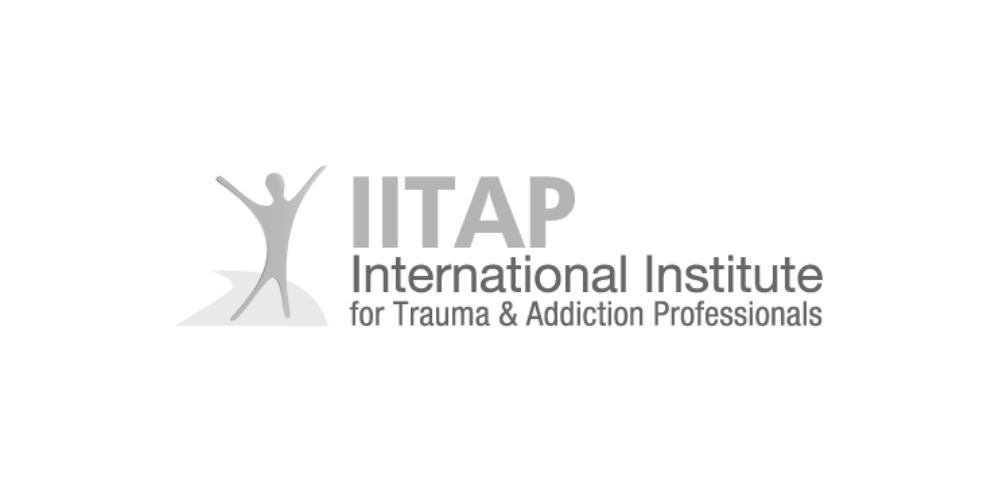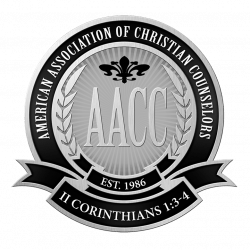By Jenny Upton
•
September 16, 2024
We like to think sexual addiction comes down to a lack of willpower, but it's so much deeper than that. It's a messy, painful spiral of shame and destructive habits. One that can trap anyone, regardless of their intentions. We minimize it, calling it an indulgence or a simple moral failing. But the truth is, sexual addiction leaves wreckage in its wake – relationships, families, lives. It's time to stop downplaying the problem. In this post, we're tackling 10 myths to expose the reality of sexual addiction and offer a path toward genuine hope and healing. 1. Sex addiction, sexual fantasy and pornography doesn’t really harm anyone. Scripture is clear that any kind of sexual immorality is not acceptable. Scripture shares in Ephesians 5:3 (NIV) “But among you there must not be even a hint of sexual immorality, or of any kind of impurity, or of greed, because these are improper for God’s holy people.” Matthew 5:27-29 (NIV) states: “You have heard that it was said, ‘You shall not commit adultery.’ But I tell you that anyone who looks at a woman lustfully has already committed adultery with her in his heart. If your right eye causes you to stumble, gouge it out and throw it away. It is better for you to lose one part of your body than for your whole body to be thrown into hell.” This applies whether one is “looking” in his mind, in person or on a computer. The coveting of another person, along with objectification occurs through this process. In general porn and fantasy affect sexual tastes and warp the mind about what sex is. It affects the brain like a drug and is a behavior that escalates. It can escalate to viewing violent porn or porn involving children. It can lead to more acceptance of violence or engaging in violent behaviors. People involved in creating porn have been reported to be forced by violence to participate in the creation of it. It fuels the sex trafficking industry. (Fightthenewdrug.org) Sexual sin is serious and the impact to the addicted person, spouse and family are significant. The addicted individual has often had to hide/be deceitful and likely for years. This is often followed by intense shame. Addiction rewires the brain, it’s chronic and compulsive. He or she needs more and more to be stimulated (much like the increased tolerance of an alcoholic). Sexual acting out will most likely escalate and could affect employment, health and may even lead to criminal activity. There’s little emotional connection or intimacy with others. When addiction takes over, the addict loses choice. The sexual addict cannot quit on his/her own. Sexual addiction harms the betrayed spouse and marriage through traumatization. The betrayed spouse has a deep sense of betrayal, lack of trust, no sense of safety and feelings of disorientation as the realization that the spouse has had a secret life settles in. The betrayed spouse will be on high alert. The betrayed may lose friendships or support from church, work, family or other social circles. They will begin to question their sense of intuition and decision making, often questioning their sanity. They will begin to have intrusive thoughts around the addiction. They may isolate themselves due to lack of support or because they are being triggered by people, places and things that previously had no meaning or caused no emotional response. The spouse will be hurt and angry. The betrayed spouse experiences a set of symptoms unique to sexual betrayal, called Relational Trauma Response (RTR). Click here to read more about RTR. All the circumstances and feelings taking place in the marriage will most certainly impact children leading to any number of emotional or behavioral responses. 2. If this is a problem of sin, just stop already! While sexual addiction starts as sin and continues to be sinful, it also becomes a problem of the brain. Because an addicted person has used acting out as a way of coping he/she has rewired the brain much like cocaine rewires the brain. Sexual desires are stored in the amygdala, the survival part of the brain (the limbic system-fight, flight or freeze). When an addicted person has a pattern of medicating their pain through sexual acting out, a whole variety of feelings and circumstances may trigger the limbic system to believe it needs sexual acting out to cope. Their challenge is to engage the prefrontal cortex where self-control and critical thinking occur. Over time, though, the concept of “use it or lose it” is at play and because the addict has spent a significant amount of time allowing the limbic system to take over the prefrontal cortex and the connections in the prefrontal cortex have atrophied and they will have a significant struggle in making choices to avoid relapse, and in reality, the individual does not have a choice. The limbic system is in control and common sense is “out the window.” The limbic system is comprised of (Roberts, 2013, pp. 232-234): The Hippocampus converts working memory into long term memory, and it creates a sense of meaning in thought process) The Amygdala is the survival center, the early warning device of the brain, and it processes information before the prefrontal cortex gets to help make a decision. There are more one way streets from the amygdala to the cortex than the other way around, so when information or experience is flowing, the amygdala will win every time. The Nucleus Accumbens identifies what a person should repeat. It floods dopamine across the prefrontal cortex (common sense) to cause an individual to feel good. This is very powerful and is directly associated with cocaine (and other substances), and sexual activity. It can rewire the brain, reducing overall brain activity, explaining why addicts make stupid decisions. Brain scans of sexual addicts and gambling addicts shows the brain lighting up upon the mere thought of sexual activity or gambling. With each choice to act out the brain’s reward system sends pleasure signals (dopamine) across the prefrontal cortex and overloads the brain. This rewires the brain and causes abnormal functioning. In an attempt to balance, the brain reduces natural dopamine production. Typical activities no longer give pleasure and reward the brain the way they used to. Only sexual acting out gives a normal sense of pleasure. Now the need to act is necessary just to feel normal. The addiction then escalates due to tolerance (the need for more to feel the same affect). Addiction also causes a switch in the brain that causes the sex addict to be overly sensitive to anything sexual. The addict is sensitized, meaning it takes less stimulation to encourage acting out. The overarching belief of the addict’s brain is that sexual acting out is needed to survive. This is why acting out escalates to more fantasizing, masturbating, or viewing of pornography or can evolve to more serious offenses such as strip clubs, affairs, and even to violence or child sexual abuse. Is there still a question to what is driving the sex trade in the world today?!?!?! Teenagers are much more vulnerable to risk taking and its effects. The prefrontal cortex is not fully developed until age 25 and adolescents experience high levels of dopamine release. They have less self-control and are more likely to take risks due to the release of dopamine. Teen brains have shown to form stronger connections with rewards like drugs or sex and the associations last longer than in adults. Sexual addiction is particularly difficult. While alcoholics may see the consequences of their actions (health problems, job loss, DUI, etc.) sexual addicts often don’t. They have an easier time staying in denial. Second, unlike cocaine or alcohol where a person physically has to use the substances to produce a high, the sex addict can immediately pull up an image to act out. When acting out occurs over and over the addict creates neurological pathways in the brain that will be difficult to overcome. Ultimately there is a battle of the mind and the brain has to be rewired. This is often a long process requiring a great deal of commitment and time. 3. Just try harder. Pray harder or trust God more and it will go away. DOUBLE NO!!! The pervasive belief of just trying harder or asking God to just take it away isn’t real recovery and can even increase shame and frustration. Trying harder usually involves an attempt to resist the addictive behaviors called “acting in.” This is also often called “white knuckling” and includes isolation, restricting, rigidity, fear, and depression. This is followed by triggers, a sense of entitlement or some number of feelings that lead the addict to “act out.” This involves chaos, excess, anger, and defiance. A sense of guilt, fear or shame begins the cycle again. Often there is a lack of understanding of what led to the addiction or what it means to be healthy. Recovery is a process with specific elements meant to address the healing of wounds, building connection with God, self, and others, ongoing accountability, addressing triggers, education on how the brain has been rewired, renewing of the mind, etc. With therapeutic treatment, relationship, accountability, commitment, application, and consistency a person can overcome addiction, but it involves more than just trying harder or praying for it to go away. 4. Be more forgiving and gracious. Be more patient, kind, and loving, right? No again! We often hear the betrayed person say “I was patient, kind, loving and forgiving and it didn’t work.” They wonder how they could have done a better job in honoring the Lord and helping to change their spouse. This is the problem. When someone tells the betrayed spouse that they should have done more of this or less of that, what is actually being said is that the unfaithful spouse’s addiction is their fault. Never, never, never is an addiction the betrayed spouse’s responsibility. To ask the betrayed spouse why they didn’t do more of anything is to add shame and guilt in a way that is inappropriate and may add to the trauma and pain they are already experiencing. Specifically, as it relates to forgiveness and reconciliation, the Bible is clear we are called to forgive as the Lord forgave us. However, this is not an issue of forgiveness only. This is an issue of rebuilding safety and trust. If a betrayed spouse always “forgives” their spouse immediately and quickly reconciles after relapse with no repentance from the unfaithful spouse, the message that is often received is, “They have forgiven and we are reconciled so I’m good to go. There’s no work left to be done on my part and my spouse must be over any hurt feelings my relapse caused.” In addition, there is no time to rebuild safety and trust which is the heart of the matter and can take years to rebuild. If a betrayed spouse is told just to forgive and the unfaithful spouse does not do anything to repair the safety and trust, then it puts a Band-Aid on a gaping wound and the heart of the issue will not be addressed, thus causing more issues and high probability of continuing the sexual acting out behaviors. 5. Using pornography or acting out fantasies enhances marriage. Betrayed spouses generally report feeling a lack of intimacy and a sense of being used in this scenario. They struggle in comparing themselves to the people in the pornographic videos. All the reasons mentioned above also apply to this question as it relates to how this affects the unfaithful spouse, the betrayed spouse and the family as a whole. 6. This is a marital problem. Sex addiction has a significant impact on the marriage and both spouses will likely need to be in recovery. It is a marital issue, but the addict is responsible for his or her addiction. A betrayed spouse has no control, nor should they have control over their spouse. While there may be ways a betrayed spouse can be supportive or helpful, only the addicted person can choose to engage in and continue with recovery from their addiction. Approaching this solely as a marital problem indicates the betrayed spouse has responsibility. An unfaithful spouse’s addiction likely began before they were even married or dating. This is a marital problem in the sense that it causes myriad marital problems, but the solution does not come through marital counseling. Marital counseling will be a portion of the treatment, and the addict is not alone in the process, but practitioners, lay people, pastoral staff and support staff must understand the heart must be transformed before work on the marriage can be started. The heart is the first organ to form in an infant, so it should be of great concern to make sure that the heart of an addict is being transformed before attempting to rejoin it to another. Ezekiel 36:26 (NLT): And I will give you a new heart, and I will put a new spirit in you. I will take out your stony, stubborn heart and give you a tender, responsive heart. Ecclesiastes 10:2 (ESV): A wise man’s heart inclines him to the right, but a fool’s heart to the left. Matthew 22:37 (ESV): And he said to him, “You shall love the Lord your God with all your heart and with all your soul and with all your mind.” 7. Have more sex. Does a cocaine addict need more cocaine to resolve his addiction? How about the alcoholic? The core of any addiction is an unhealthy form of coping that often stems from family of origin wounds or trauma. While sex is clearly not negative or unhealthy and is part of God’s design, the way an addict has been using sex is. An addict connects sexual activity with hiding or isolating, being disconnected from others, shame, pain, guilt, and it is impulsive and self-serving. The addict, over time, has betrayed his spouse and other family members. He has overspent, lost employment, contracted STD’s or other health conditions, shifted household responsibilities, been incarcerated, abused others, etc. The unfaithful spouse’s acting out can raise the risk of STD’s for the betrayed spouse and until the unfaithful spouse is in consistent recovery, sex is emotionally and physically unsafe for the betrayed spouse. Healthy marital sex should be giving, connected, and safe. The problem is much more complex than the idea of just having more sex. 8. Boundaries and consequences are mean and harmful to the marriage and not biblical. False! A boundary is like a fence around your house that draws a line saying this is how far you can come. A boundary makes clear the idea that a behavior is not ok and won’t be tolerated. The alternatives to boundaries is attempting to control another’s behavior or remaining in an unsafe relationship. When a behavior is harmful to another person a boundary is not only a good idea, it’s needed and necessary for the emotional, spiritual and sometimes physical wellbeing of both people involved. Boundaries will help to protect the betrayed spouse physically and emotionally from the sin and destruction of the unfaithful spouse, especially if acting out continues. Scripture supports guarding hearts and staying away from evil and wickedness. Boundaries can be crucially helpful for the unfaithful spouse. They can assist in bringing him/her out of denial and to an understanding of the seriousness of the behavior. Boundaries can also serve as a motivator for engaging in recovery. A boundary might sound like, “Looking at or thinking about other women in a sexual way does not honor the Lord or me and our marriage. You can choose to think sexually about other women but I won’t share my marriage with other women. You choose.” If the unfaithful spouse then chooses recovery and is consistent, both parties can engage in the healing and recovery process to restore their marriage. If the unfaithful spouse decides not to pursue recovery and is not repentant, then the betrayed spouse can pursue the Lord in deciding if and when separation or divorce is appropriate. Boundaries can give one or both spouses the space needed to have clarity and time to heal. Boundaries are in fact a very loving action for the betrayed and the other person. Both people matter and boundaries are needed to protect them both. Consequences can be critical in helping the addicted person to recognize the seriousness of his behavior. He is either going to hit an absolute bottom or an artificial bottom. (Jim Bakker, Tullian Tchividjian, Chris Hill, John Paulk, Douglas Goodman, Ted Haggard, George Rekers, Earl Paulk, and the list goes on). A betrayed spouse will need to create and enforce consequences to protect themselves and the marriage. In alcohol addiction, generally there are more obvious signs and consequences. A consequence for sexual addiction might sound like, “if you choose to have an affair or look at pornography then I will ask you to leave the house or sleep in another room.” Consider it from the perspective without consequences and boundaries. Would it be advisable for an alcoholic to drive while drunk? Of course not. It wouldn’t be safe for them or others. Would it be smart for a judge to time and time again withhold conviction from someone who has continued to drive drunk? What message would this send to the alcoholic? The same is true in sexual addiction. Serious and repetitive sin can be lethal to any relationship. Boundaries and consequences are clear throughout the Bible. A person only needs to read one story to see where God has drawn a clear line and the consequences that follow when this is not obeyed. Sin drives a wedge between us and God and in the same way ongoing, destructive sin drives a wedge in a marriage. Boundaries and consequences honor the Lord when a betrayed spouse can find healing and hope for restoration in their marriage. They honor the Lord when the betrayed spouse says “I won’t put up with that behavior anymore” and encourages the unfaithful spouse to make life altering choices that help them to choose to turn away from sin and death back to life and restoration with the Lord. 9. Sex addiction is not an addiction. The DSM-V (the bible of psychology) doesn’t classify it as such. While it’s true that the DSM-V does not classify sexual addiction as an addiction, it has also ceased to recognize myriad other sexual perversions. The chairing doctor for the DSM-IV, Dr. Allen Frances, identified it like this: “The DSM franchise has become [an] enormously profitable publishing enterprise” (Gorenstein, 2013, p. 1). Those who know that sexual addiction is real are not alone in their fight with the American Psychiatric Association (APA). Dr. Van der Kolk (2014) who has spent decades treating people with trauma found that many of the disorders listed in the DSM began as Developmental Trauma Disorder (DTD). When he presented mounds and mounds of evidence to the APA to include DTD in the DSM-5 the concept was rejected referencing a lack of evidence showing that childhood experiences traumatize individuals (Van der Kolk, 2014). 10. The sex addict is hopeless and nothing will ever heal the addiction. At EWCC, we use a recovery book called The Seven Pillars of Freedom” written by Dr. Ted Roberts. He reports that 95% of the sexual addicts who follow the seven pillars and have outside support will successfully be healed from sexual addiction. We are seeing men set free every day. The process is difficult, but very possible. Here is a sample of the initial commitment to the recovery process (p. 18): Attend a small group for men that understands addiction and healing. Commit to the process of identifying and healing the root issues my life. Commit to daily prayer and scripture reading. Fill out the FASTER relapse awareness scale and subsequent accountability card and give it to two people who will support me in the healing process. Begin/continue classes or counseling for healing of childhood wounds. Commit to sharing with an accountability partner what was studied and applied, as well as insights gained throughout the week. Seek counseling for current personal, sexual addiction, and/or shame issues, boundaries, codependency, trauma, etc. Commit to personal journaling. Arrange for STD testing if infidelity has occurred. For my own spiritual growth, I will make a commitment to a local church. More can be added to customize and fit the needs of any given individual. Some are more involved cases than others, but when a spouse is involved betrayal is imminent. Even when a spouse is not involved, people are affected. EWCC has multiple men’s groups addressing this issue. Contact the office today for more information. So, what can I say and how should I support a couple in a sexual addiction situation? Having a solid understanding of what sexual addiction is and how it affects both the unfaithful and betrayed spouse is the first critical step. Be clear that sexual addiction is a problem and needs professional help. Offer to connect them with professionals who work in sexual addiction and offer resources. Following that, plan to encourage, love and support them both in their recovery. Affirm that the Lord loves them both and desires to work in both of their struggles and hurts. Keep in mind that recovery for the betrayed spouse may not mean restoration of their marriage, especially if the unfaithful spouse continues acting out. Prepare to support them regardless of the direction of their marriage. References Gorenstein, D. (2013). How much is the DSM-5 worth? Marketplace. Retrieved from https://www.marketplace.org/2013/05/17/health-care/how-much-dsm-5-worth Roberts, D. (2014). Beyond betrayal: Fashioning a courageous heart workbook. Gresham, OR: Pure Desire Ministries International. Roberts, T. (2014). Seven pillars of freedom workbook. Gresham, OR: Pure Desires Ministries International. Van der Kolk, B. (2014). The body keeps the score: Brain, mind and body in the healing of trauma. New York, NY: Penguin Books.
















